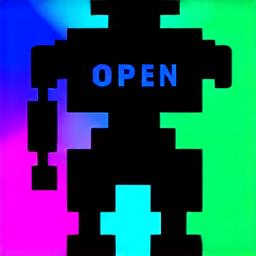Android is a powerful and popular operating system used by billions of people worldwide. With its open-source nature, it provides an opportunity for developers to create innovative and engaging applications that can be used on a wide range of devices.
Responsibilities of Android Application Developers

Android application developers are responsible for creating high-quality apps that can be used on a variety of devices running the Android operating system. They work closely with designers, product managers, and other stakeholders to ensure that their apps meet the needs and expectations of users.
-
Designing and developing user interfaces: Android application developers are responsible for designing and developing user interfaces that are intuitive, easy to use, and visually appealing. This includes creating wireframes, prototypes, and mockups to ensure that the app is functional, engaging, and meets the needs of users.
-
Writing code: Android application developers must have a strong understanding of Java and other programming languages used in app development. They write code to create custom features, implement user interactions, and integrate with other apps and services.
-
Debugging and testing: Android application developers spend a lot of time debugging and testing their apps to ensure that they work as expected and are free from bugs and errors. This includes using automated tools, manual testing, and user testing to identify and fix issues.
-
Optimizing performance: Android application developers must optimize the performance of their apps to ensure that they run smoothly and efficiently on a variety of devices. This includes minimizing battery consumption, reducing memory usage, and improving loading times.
-
Keeping up with new technologies: Android application developers must keep up with new technologies and trends in mobile app development to stay competitive and deliver the best possible user experience. This includes staying informed about new APIs, libraries, frameworks, and development tools.

Unlocking Endless Possibilities with Android App Development
Android app development offers a wide range of possibilities for developers to create innovative and engaging apps that can be used on a variety of devices. Some of the ways that Android application developers can unlock endless possibilities include:
-
Integrating with other apps and services: Android app developers can integrate their apps with other apps and services to provide users with a seamless and integrated experience. This includes using APIs and SDKs to connect with social media platforms, cloud storage services, and other apps and services.
-
Creating custom features and functionalities: Android application developers have the flexibility to create custom features and functionalities that are unique to their app. This includes creating custom user interfaces, implementing advanced algorithms and machine learning, and integrating with new technologies such as augmented reality and virtual reality.
-
Building for multiple devices and screen sizes: Android app developers can build apps that are optimized for multiple devices and screen sizes, ensuring that users have a consistent experience across different devices and platforms. This includes using responsive design techniques, creating layouts that adapt to different screen sizes, and implementing features such as automatic scaling and rotation.
-
Targeting specific markets and demographics: Android application developers can target specific markets and demographics by creating apps that are tailored to the needs and preferences of their users. This includes conducting market research, analyzing user data, and using analytics tools to identify trends and opportunities.

Case Studies and Personal Experiences
To illustrate the potential of Android app development, let’s look at some real-life examples:
-
Uber: Uber is a popular ride-hailing app that was developed for Android devices. It uses GPS technology to connect riders with drivers and provides a seamless user experience through its intuitive interface and advanced features such as real-time tracking and payment processing.
